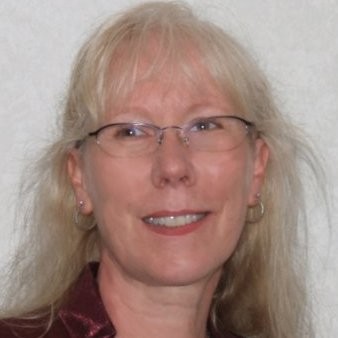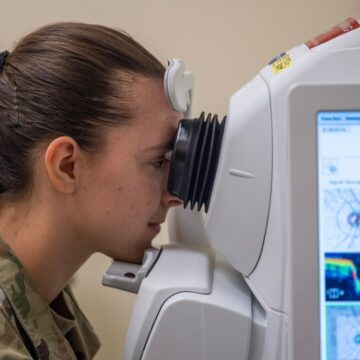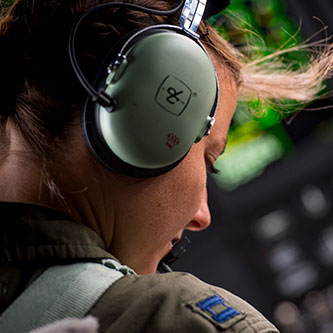Sensory Systems
Performance Capabilities
Spearheading Sensory Innovations
To improve mission success and reduce the risk of injury or casualties, Geneva’s research and support aims to enhance sensory capabilities for operational readiness and effectiveness, including:
- Providing financial support for research projects through grants, contracts, and other funding mechanisms to help researchers conduct basic science investigations, clinical trials, and translational research
- Coordinating and managing research projects, to streamline administrative processes, facilitate collaboration between research teams, and ensure compliance with regulatory requirements
- Recruiting and enrolling human subjects, by leveraging existing networks within the military healthcare system and veteran communities to identify eligible participants and facilitate their involvement
- Managing and analyzing data collected during research studies, including providing access to data management platforms, statistical support services, and expertise in data analysis techniques
Geneva's Award-Winning NOISE Study Team
The Military Health System awarded the Noise Outcomes in Service Members Epidemiology (NOISE) study team the Outstanding Research Accomplishment Award during the 2022 Military Health System Research Symposium (MHSRS). The team, led by PI James Henry, PhD, and comprised of Geneva researchers and Department of Veteran Affairs (VA) researchers, was recognized for their significant achievements in auditory rehabilitation research.
Read More About NOISE Study AwardGeneva's Expertise
Researcher To Watch
Victoria Tepe, PhD
Dr. Tepe is a senior science advisor for Geneva and a neuroscientist who supports the Department of Defense Hearing Center of Excellence (HCE). Recently, she co-authored a review article titled Acquired Central Auditory Processing Disorder in Service Members and Veterans.
Featured Research Study
The Epidemiology of Combat Ocular Injury to Guide Prolonged Field Care
Geneva Epidemiologist Amanda Staudt, PhD, MPH is working at the U.S. Army Institute of Surgical Research (USAISR) in San Antonio, Texas where she is conducting the first study of its kind to provide a representation of the actual number of years of healthy life lost to the ocular injury resulting from combat.





